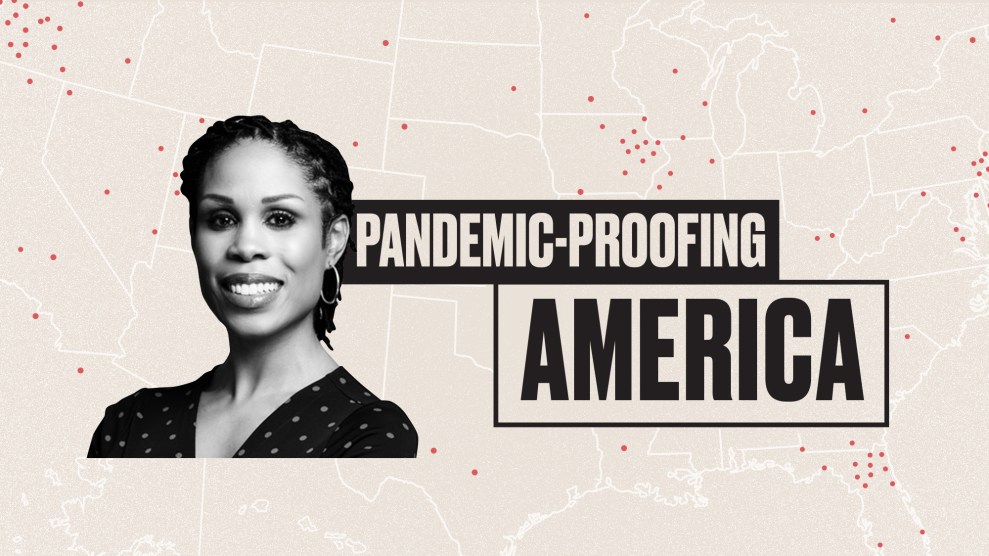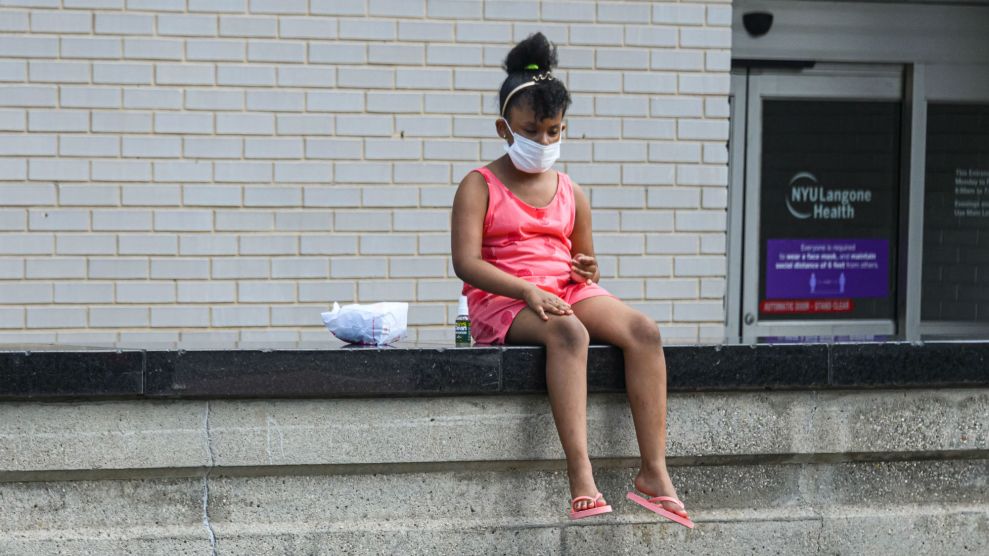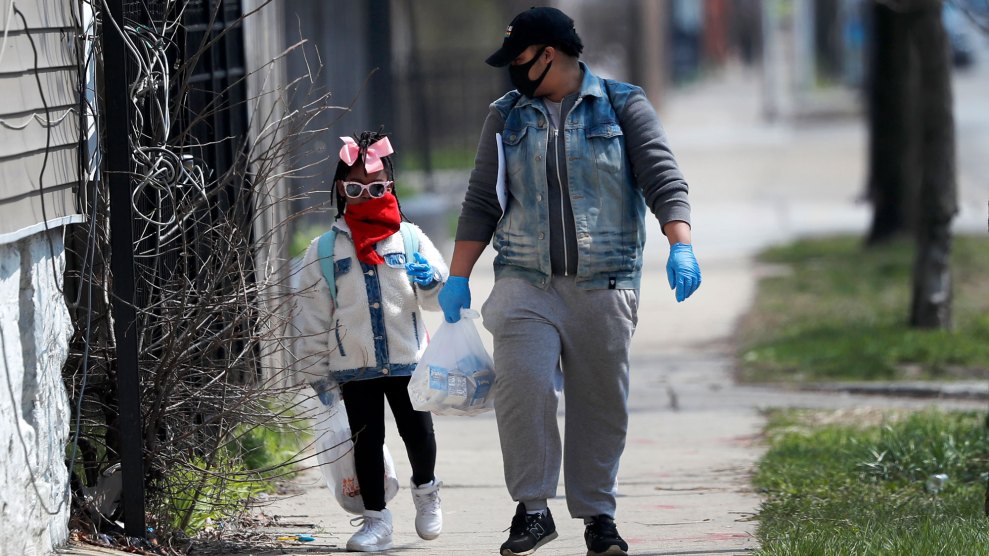
Mother Jones illustration; Advancing Health Equity
As the world grapples with the devastation of the coronavirus, one thing is clear: The United States simply wasn’t prepared. Despite repeated warnings from infectious disease experts over the years, we lacked essential beds, equipment, and medication; public health advice was confusing, and our leadership offered no clear direction while sidelining credible health professionals and institutions. Infectious disease experts agree that it’s only a matter of time before the next pandemic hits, and that could be even more deadly. So how do we fix what COVID has shown was broken? In this Mother Jones series, we’re asking experts from a wide range of disciplines one question: What are the most important steps we can take to make sure we’re better prepared next time around?
Uché Blackstock saw the warning signs early. An emergency room physician with a part-time urgent care practice in Brooklyn, Blackstock often treats poor or working-class Black and Brown New Yorkers who don’t have access to preventive health care. In the early days of the pandemic she noticed that patients were coming in with unusually severe respiratory issues. Even though she suspected they might have COVID-19, they couldn’t get tested for the coronavirus because they hadn’t traveled internationally to what were then hot spots: Wuhan, China, or Italy. She knew immediately that the screening process was biased, and she wasn’t considering poor and working-class people with already compromised immune systems who may not have even had passports. As the pandemic unfolded, New York City became one of its earliest epicenters, and Black communities got sick and died at disproportionate rates across the country. Blackstock, who is also the founder of Advancing Health equity, a racial justice consulting practice that helps train health care organizations in unconscious and structural racism, believes that equity work is a key to preventing the next pandemic.
On the COVID-19 knowledge gap in Black communities: I just submitted a recommendation to the Select Subcommittee for the Coronavirus representative because I testified a few weeks ago. I divided my recommendations into short and long term recommendations, but the shorter ones were: having testing and contact tracing employees in Black communities. The other part of it is the issue of education and outreach. There’s a study that came out in the Journal of the American Medical Association (JAMA) two weeks ago that surveyed a lot of different people, but showed that even though Black Americans were disproportionately impacted by coronavirus, that we actually had less knowledge of how the virus was transmitted.
We’re seeing there’s a gap in messaging. While you can have Dr. Anthony Fauci talking about what to do—wear a mask, physically distance—I think it’s obvious that we need a more nuanced approach with Black communities.
On how to make sure Black Americans get the public information they need: Given the history of distrust of health care by Black Americans, it’s even more important. What does that look like? That would look like making sure that you have individuals who are trusted in the community be the ones that are doing the messaging, because usually people who are from the community that they work in, they know the community well. Or it could be faith-based organizations. It should be people who are in community-based organizations and are already doing the work in those areas.
Whether it’s housing and making sure the housing advocacy group are in a neighborhood is one of the first groups that public health departments work with to ensure that people have safe housing alternatives. We should be working with to ensure that people have safe housing alternatives. Even contact tracing, which involves asking people who they’ve been around for the past few weeks. Most people are not just going to tell a random stranger who they’ve been around. That’s because, who knows what you’d be doing? That’s private information. That emphasizes more of a need to have trusted individuals from the community involved in any sort of response to a pandemic.
If we don’t want to see the disparities that we’re seeing this time, we have to have a long-term, sustained commitment by the federal government to investing in Black communities. That includes Medicaid expansion and making sure that everyone is insured. But also investing in the social determinants of health in communities: education, housing, gainful employment.

















